Cashew nuts, renowned for their unique taste and nutritional properties, have gained popularity worldwide, making them a lucrative commodity in the global market. The demand for cashew nuts has been steadily increasing over the years, leading to significant trade activities across various countries. This summary provides an overview of the largest importer of cashew nuts in the world, showcasing the import trends, key players, and market dynamics that have contributed to the country’s position. Market Overview: The import of cashew nuts has seen a remarkable surge owing to the rising consumption and growing awareness about the health benefits of this delicious snack. Among the major importing countries, the United States emerges as the largest importer of cashew nuts globally. The U.S. market is known for its high consumption levels and a strong affinity for nuts and dried fruits in general, making it a prime destination for cashew nut exporters. Key factors contributing to the U.S.’s dominance as the largest importer of cashew nuts include the country’s robust retail sector, a diverse consumer base, and a highly developed logistics network that facilitates efficient import and distribution operations. The availability of a wide range of cashew nut product options across various retail channels further fuels the demand for imported cashews. Import Trends and Consumption Patterns: The U.S. cashew nut market has witnessed significant growth in recent years, fueled by changing consumer preferences and a growing focus on healthy snacking options. The demand for cashew nuts in the U.S. is not limited to its consumption as a standalone product; they are also extensively used as key ingredients in the food processing and confectionery industries. Moreover, the rise in veganism and plant-based diets has further propelled the demand for cashew nuts as a popular alternative to dairy-based products. The usage of cashew nuts as a milk substitute, cheese substitute, and even as an ingredient in vegan desserts has contributed to the surge in imports. Market Dynamics: Several key dynamics have contributed to the U.S.’s status as the largest importer of cashew nuts. These include: 1. Growing Health Consciousness: With an increasing focus on maintaining a healthy lifestyle, consumers are actively seeking out nutritious and low-fat snack options. Cashew nuts, rich in nutrients and healthy fats, offer a satisfying alternative to traditional snacks, leading to increased imports. 2. Retail Sector Expansion: The retail sector in the U.S. is marked by its dynamism and continuous expansion. The presence of various types of stores such as supermarkets, convenience stores, health food stores, and online platforms provides immense opportunities for cashew nut importers to cater to a diverse consumer base. 3. Global Sourcing: The global nature of the cashew nut trade enables importers to source the highest-quality cashews from different origins worldwide, ensuring a steady supply to meet the growing demand of the U.S. market. Leading exporting countries such as Vietnam, India, and Brazil play a crucial role in meeting the import requirements of the United States.
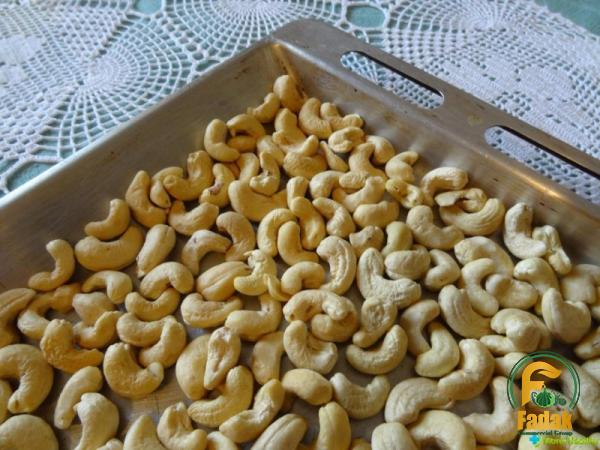
nut
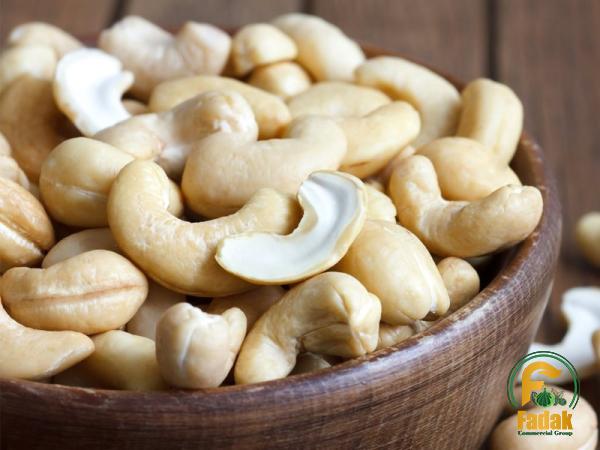 4. Supply Chain Efficiency: The efficiency of the supply chain is vital in ensuring the timely delivery and freshness of cashew nuts to consumers. The U.S. importers have established well-connected logistics networks that enable the smooth transportation and distribution of cashew nuts across the country. Key Players in the Import Market: While numerous players contribute to the import of cashew nuts in the United States, several key importers dominate the market. These companies have extensive networks, established relationships with global suppliers, and strong distribution capabilities. A few prominent importers include: 1. John B. Sanfilippo & Son, Inc.: With over 90 years of experience, Sanfilippo & Son is one of the leading importers and distributors of nuts and dried fruits, including cashew nuts, in the United States. They maintain strong ties with suppliers from multiple countries, ensuring a steady supply of high-quality cashews. 2. Olam International: As a global integrated supply chain manager and processor of agricultural products, Olam has a significant presence in the cashew nut market. With extensive sourcing and marketing capabilities, Olam has established itself as a key player in the import and distribution of cashews in the United States. 3. Archer Daniels Midland (ADM): ADM is a leading multinational food processing and commodities trading corporation involved in numerous sectors, including cashew nut imports. The company boasts a vast network of suppliers and has the resources to import and distribute cashew nuts to various retail channels. Outlook and Future Trends: The future outlook for the import of cashew nuts into the United States remains promising. The growing awareness regarding the health benefits and versatility of cashew nuts, combined with an increasing consumer demand for plant-based alternatives, is expected to drive further growth in the market. Furthermore, the rise of e-commerce and online retail platforms has opened up new avenues for importers to reach consumers directly. With the expansion of product offerings and ease of accessibility, the online market is projected to contribute significantly to the growth of cashew nut imports. Conclusion: The United States remains the largest importer of cashew nuts globally, fueled by a combination of factors such as a growing consumer demand for healthy snacking options, a diverse retail sector, and efficient supply chain logistics. With evolving consumer preferences and the rise of plant-based diets, the import market for cashew nuts in the United States is poised for continued growth in the coming years. Importers and global suppliers can leverage this opportunity to expand their business and meet the increasing demand for this versatile and nutritious product.The Largest Importer of Cashew Nuts in the World: A Closer Look at the Global Market 1. Introduction Cashew nuts, known for their distinct taste and health benefits, have become a sought-after commodity in the global market. Among the major importing countries, the United States stands out as the largest importer of cashew nuts worldwide.
4. Supply Chain Efficiency: The efficiency of the supply chain is vital in ensuring the timely delivery and freshness of cashew nuts to consumers. The U.S. importers have established well-connected logistics networks that enable the smooth transportation and distribution of cashew nuts across the country. Key Players in the Import Market: While numerous players contribute to the import of cashew nuts in the United States, several key importers dominate the market. These companies have extensive networks, established relationships with global suppliers, and strong distribution capabilities. A few prominent importers include: 1. John B. Sanfilippo & Son, Inc.: With over 90 years of experience, Sanfilippo & Son is one of the leading importers and distributors of nuts and dried fruits, including cashew nuts, in the United States. They maintain strong ties with suppliers from multiple countries, ensuring a steady supply of high-quality cashews. 2. Olam International: As a global integrated supply chain manager and processor of agricultural products, Olam has a significant presence in the cashew nut market. With extensive sourcing and marketing capabilities, Olam has established itself as a key player in the import and distribution of cashews in the United States. 3. Archer Daniels Midland (ADM): ADM is a leading multinational food processing and commodities trading corporation involved in numerous sectors, including cashew nut imports. The company boasts a vast network of suppliers and has the resources to import and distribute cashew nuts to various retail channels. Outlook and Future Trends: The future outlook for the import of cashew nuts into the United States remains promising. The growing awareness regarding the health benefits and versatility of cashew nuts, combined with an increasing consumer demand for plant-based alternatives, is expected to drive further growth in the market. Furthermore, the rise of e-commerce and online retail platforms has opened up new avenues for importers to reach consumers directly. With the expansion of product offerings and ease of accessibility, the online market is projected to contribute significantly to the growth of cashew nut imports. Conclusion: The United States remains the largest importer of cashew nuts globally, fueled by a combination of factors such as a growing consumer demand for healthy snacking options, a diverse retail sector, and efficient supply chain logistics. With evolving consumer preferences and the rise of plant-based diets, the import market for cashew nuts in the United States is poised for continued growth in the coming years. Importers and global suppliers can leverage this opportunity to expand their business and meet the increasing demand for this versatile and nutritious product.The Largest Importer of Cashew Nuts in the World: A Closer Look at the Global Market 1. Introduction Cashew nuts, known for their distinct taste and health benefits, have become a sought-after commodity in the global market. Among the major importing countries, the United States stands out as the largest importer of cashew nuts worldwide.
Specifications of nut
 This article delves deeper into the dynamics, market trends, and key players that have contributed to the United States’ dominance as the largest importer of cashew nuts. 2. Growing Demand for Cashew Nuts The demand for cashew nuts has been steadily increasing due to several factors. Firstly, cashews are highly nutritious and packed with essential vitamins and minerals, making them a preferred choice among health-conscious consumers. Additionally, cashews have gained popularity as a versatile ingredient in various cuisines, ranging from salads and snacks to desserts and confectionery products. 3. The United States as a Key Market The United States has established itself as a key market for cashew nut imports due to its large consumer base and robust retail sector. The American population’s growing preference for healthier snacking alternatives contributes to the surge in cashew nut imports. Moreover, the cultural diversity in the United States encourages the adoption of different cuisines, leading to a higher demand for cashew nuts as an ingredient in various recipes. 4. Factors Driving Import Growth Several factors have contributed to the United States’ position as the largest importer of cashew nuts: a. Health Consciousness: The increasing awareness about the health benefits of cashew nuts has led to a shift in consumer preferences towards healthier snacking options. Cashews, with their high nutritional value and numerous health benefits, attract health-conscious consumers. b. Retail Sector Expansion: The United States boasts a diverse and expansive retail sector, with supermarkets, convenience stores, and specialty food stores catering to a wide range of consumers. These outlets provide an avenue for cashew nut importers to distribute their products and meet consumer demand. c. Rise of Veganism: The growing popularity of veganism and plant-based diets has led to a surge in the demand for cashew nuts as a dairy substitute. Cashew nuts find extensive usage in vegan cheese, milk alternatives, and desserts, making them an essential ingredient for vegan-friendly products. d. Imported Cashew Quality: The United States imports cashew nuts from several countries, including leading producers like Vietnam, India, and Brazil. These countries have established a reputation for producing high-quality cashews, meeting the American consumers’ expectations for taste and quality. 5. Key Players in the Market The United States’ position as the largest importer of cashew nuts is supported by several key players: a. John B. Sanfilippo & Son, Inc.: Sanfilippo & Son is a well-established importer and distributor of nuts and dried fruits, including cashew nuts. With an extensive supply chain network and solid relationships with global suppliers, they play a pivotal role in meeting the growing demand for cashews in the United States. b. Olam International: Olam International, a global supply chain manager and processor of agricultural products, has a significant presence in the cashew nut market. Their sourcing capabilities and distribution network ensure a steady supply of cashew nuts to meet market demand. c. Archer Daniels Midland (ADM): As a multinational food processing and commodities trading corporation, ADM has a strong foothold in the cashew nut import market. Their vast network of suppliers and established distribution channels make them a key player in cashew nut imports.
This article delves deeper into the dynamics, market trends, and key players that have contributed to the United States’ dominance as the largest importer of cashew nuts. 2. Growing Demand for Cashew Nuts The demand for cashew nuts has been steadily increasing due to several factors. Firstly, cashews are highly nutritious and packed with essential vitamins and minerals, making them a preferred choice among health-conscious consumers. Additionally, cashews have gained popularity as a versatile ingredient in various cuisines, ranging from salads and snacks to desserts and confectionery products. 3. The United States as a Key Market The United States has established itself as a key market for cashew nut imports due to its large consumer base and robust retail sector. The American population’s growing preference for healthier snacking alternatives contributes to the surge in cashew nut imports. Moreover, the cultural diversity in the United States encourages the adoption of different cuisines, leading to a higher demand for cashew nuts as an ingredient in various recipes. 4. Factors Driving Import Growth Several factors have contributed to the United States’ position as the largest importer of cashew nuts: a. Health Consciousness: The increasing awareness about the health benefits of cashew nuts has led to a shift in consumer preferences towards healthier snacking options. Cashews, with their high nutritional value and numerous health benefits, attract health-conscious consumers. b. Retail Sector Expansion: The United States boasts a diverse and expansive retail sector, with supermarkets, convenience stores, and specialty food stores catering to a wide range of consumers. These outlets provide an avenue for cashew nut importers to distribute their products and meet consumer demand. c. Rise of Veganism: The growing popularity of veganism and plant-based diets has led to a surge in the demand for cashew nuts as a dairy substitute. Cashew nuts find extensive usage in vegan cheese, milk alternatives, and desserts, making them an essential ingredient for vegan-friendly products. d. Imported Cashew Quality: The United States imports cashew nuts from several countries, including leading producers like Vietnam, India, and Brazil. These countries have established a reputation for producing high-quality cashews, meeting the American consumers’ expectations for taste and quality. 5. Key Players in the Market The United States’ position as the largest importer of cashew nuts is supported by several key players: a. John B. Sanfilippo & Son, Inc.: Sanfilippo & Son is a well-established importer and distributor of nuts and dried fruits, including cashew nuts. With an extensive supply chain network and solid relationships with global suppliers, they play a pivotal role in meeting the growing demand for cashews in the United States. b. Olam International: Olam International, a global supply chain manager and processor of agricultural products, has a significant presence in the cashew nut market. Their sourcing capabilities and distribution network ensure a steady supply of cashew nuts to meet market demand. c. Archer Daniels Midland (ADM): As a multinational food processing and commodities trading corporation, ADM has a strong foothold in the cashew nut import market. Their vast network of suppliers and established distribution channels make them a key player in cashew nut imports.
buy nut
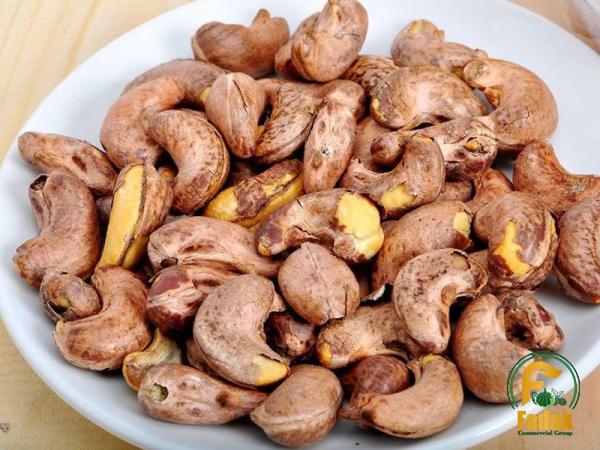 6. Retail Channels and Distribution Cashew nuts are distributed through a variety of retail channels in the United States, including supermarkets, health food stores, convenience stores, and e-commerce platforms. The presence of these diverse retail channels ensures widespread availability and accessibility of cashew nuts to meet consumer demand. 7. Government Regulations and Trade Policies Government regulations and trade policies play a crucial role in facilitating the import of cashew nuts into the United States. Importers must comply with food safety standards, labeling requirements, and adhere to customs regulations to ensure the quality and legality of imported cashew nuts. 8. Challenges and Opportunities While the United States enjoys a prominent position as the largest importer of cashew nuts, some challenges persist. Fluctuating global market prices, changing consumer preferences, and geopolitical factors can impact the cashew nut import market. However, these challenges also present opportunities for importers to adapt, diversify their product offerings, and explore emerging markets. 9. Future Outlook The future outlook for cashew nut imports in the United States remains promising. The demand for healthier snack options and the versatility of cashews as an ingredient in various food products are expected to drive continued growth. With advancements in logistics and technology, importers can streamline their supply chain operations and meet the growing demand efficiently. 10. Conclusion The United States’ position as the largest importer of cashew nuts highlights the increasing consumer demand for healthy and versatile snacks. Factors such as health consciousness, a diverse retail sector, and the rise of alternative diets contribute to the growing import market. As the demand for cashew nuts continues to rise, importers and traders have the opportunity to capitalize on this trend and meet consumer preferences by offering high-quality cashew nut products.
6. Retail Channels and Distribution Cashew nuts are distributed through a variety of retail channels in the United States, including supermarkets, health food stores, convenience stores, and e-commerce platforms. The presence of these diverse retail channels ensures widespread availability and accessibility of cashew nuts to meet consumer demand. 7. Government Regulations and Trade Policies Government regulations and trade policies play a crucial role in facilitating the import of cashew nuts into the United States. Importers must comply with food safety standards, labeling requirements, and adhere to customs regulations to ensure the quality and legality of imported cashew nuts. 8. Challenges and Opportunities While the United States enjoys a prominent position as the largest importer of cashew nuts, some challenges persist. Fluctuating global market prices, changing consumer preferences, and geopolitical factors can impact the cashew nut import market. However, these challenges also present opportunities for importers to adapt, diversify their product offerings, and explore emerging markets. 9. Future Outlook The future outlook for cashew nut imports in the United States remains promising. The demand for healthier snack options and the versatility of cashews as an ingredient in various food products are expected to drive continued growth. With advancements in logistics and technology, importers can streamline their supply chain operations and meet the growing demand efficiently. 10. Conclusion The United States’ position as the largest importer of cashew nuts highlights the increasing consumer demand for healthy and versatile snacks. Factors such as health consciousness, a diverse retail sector, and the rise of alternative diets contribute to the growing import market. As the demand for cashew nuts continues to rise, importers and traders have the opportunity to capitalize on this trend and meet consumer preferences by offering high-quality cashew nut products.
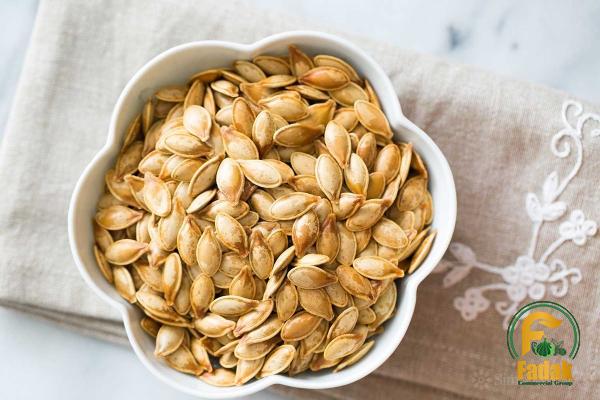
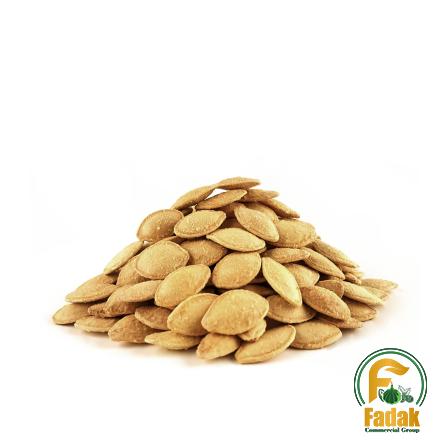
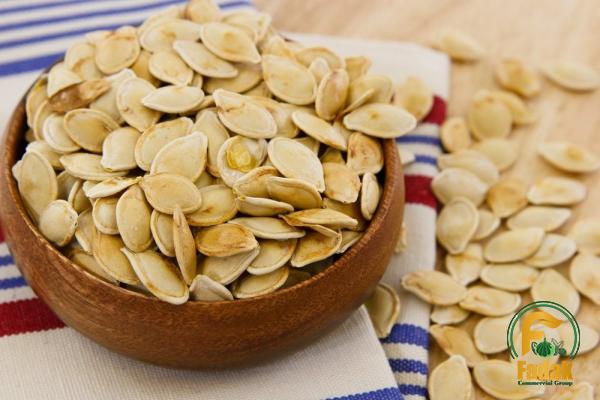
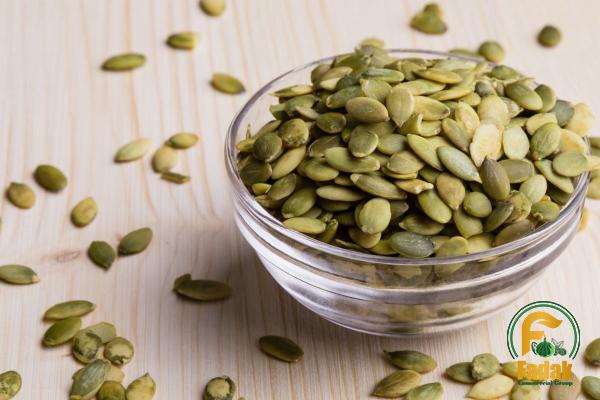
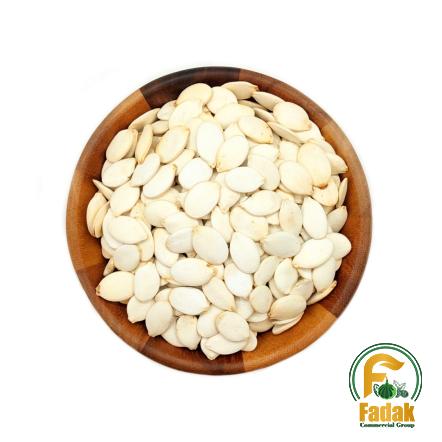
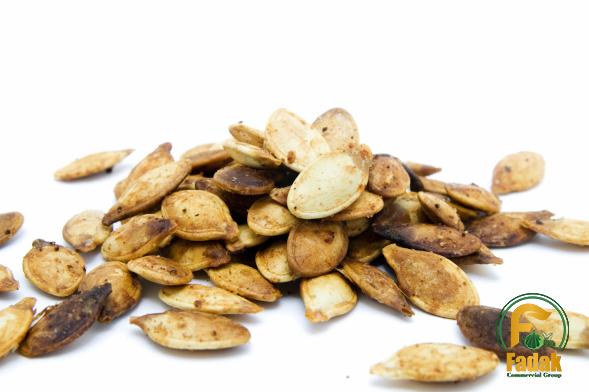
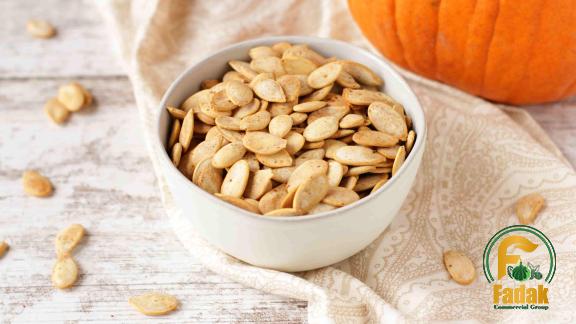
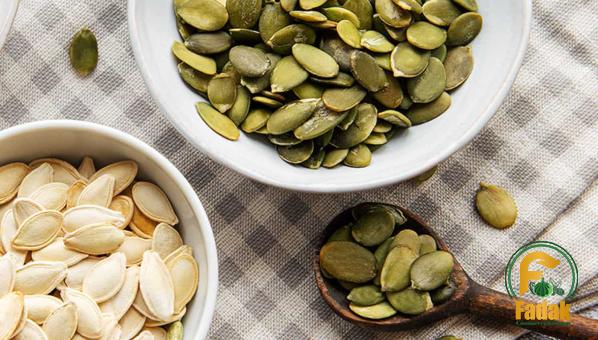
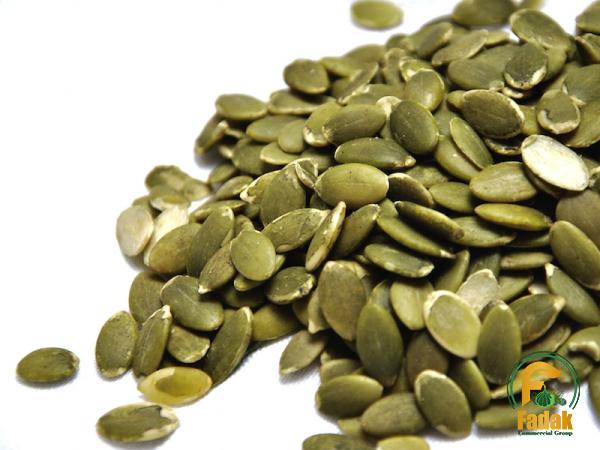
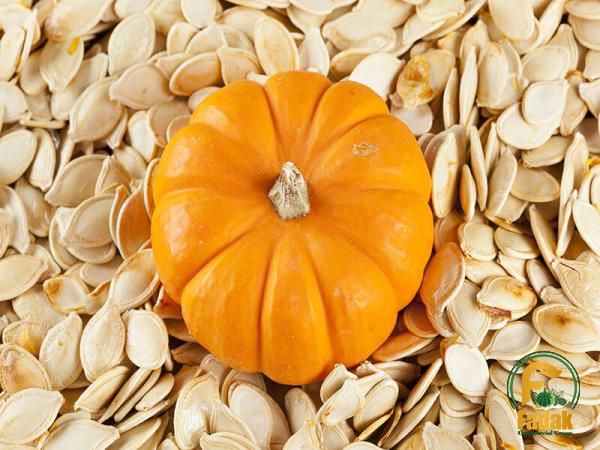
Your comment submitted.